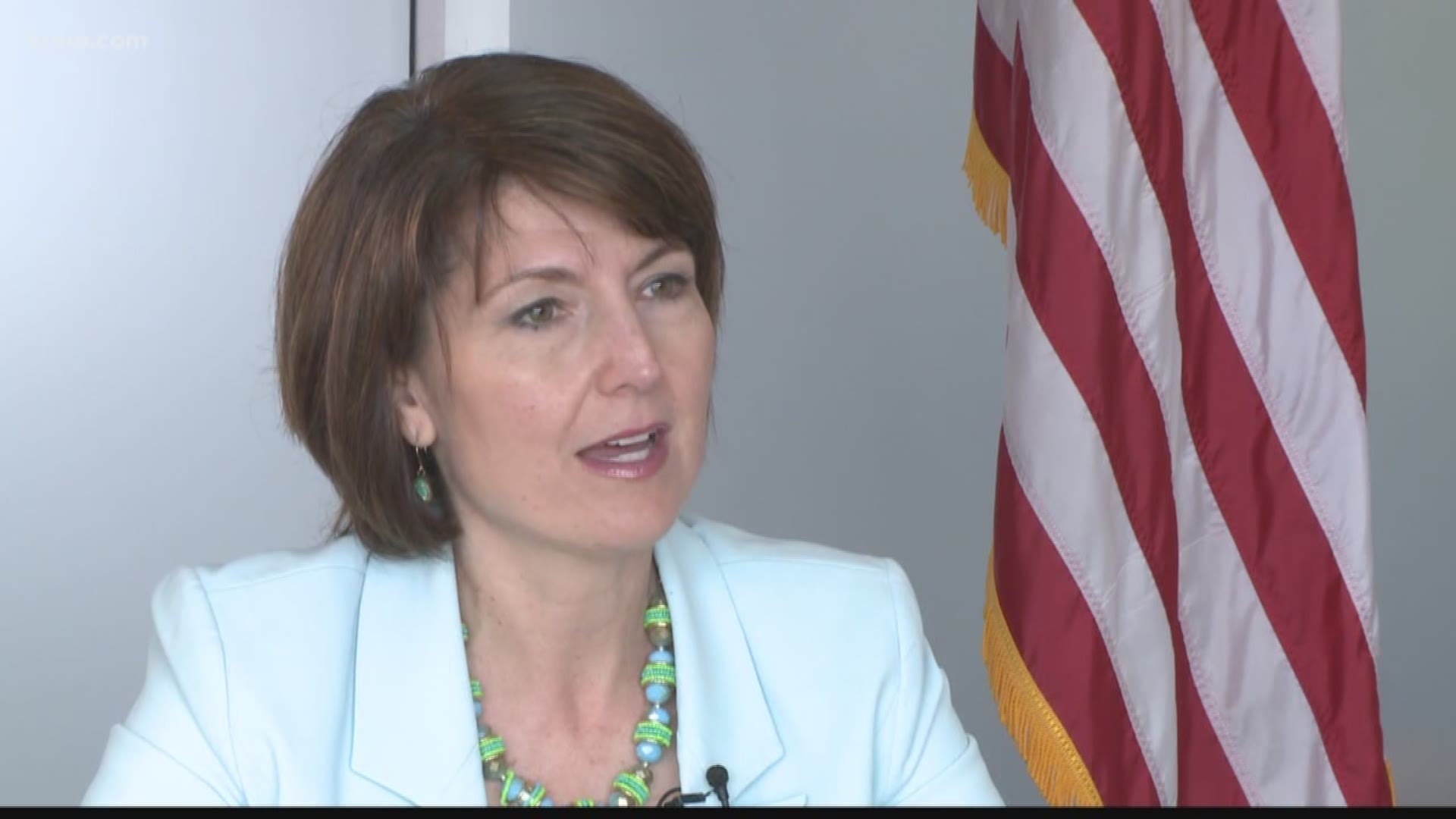SPOKANE, Wash.-- KREM 2 viewers voted on the top issues to them this election cycle, and they said that health care tops the list. KREM 2 sat down with candidates for Washington's 5th District to get answers on some current health care concerns.
Congresswoman Cathy McMorris Rodgers defended her vote last year on the American Health Care Act, and her commitment to pre-existing conditions protections. She also voiced concerns over medical marijuana, the opioid addiction crisis, and rising health care costs.
Give me your diagnosis. What does the health care market look like right now in America?
Well, we still have some work to do. We continue to hear from individuals. I hear from families, businesses--small businesses, especially--that are continuing to face very high premiums and the projection is this fall we’re going to see double digit premium increases again, and that’s where health care/health insurance for a lot of people is not affordable. We need to make sure we’re taking steps to make sure that health insurance is affordable and that individuals, families, small businesses have plans that are going to meet their needs that they can afford. That’s one part of it, the premiums themselves but then also the deductibles and the co-pays. Even if you do have health insurance you’re still paying these really high deductibles. I think we still need to look at how we provide more options--the expansion of health savings accounts, I support association health plans, allowing individuals to go beyond state lines to purchase health insurance--those are some of the reforms I’d like to see us move forward on. The house has passed some, but we need to get more on the president’s desk.
You’ve said you’re committed to pre-existing condition protection, but specifically what kinds of things are you going to look for to make sure that it’s not just a protection on paper but it’s true protection?
Well for me, this issue is both a policy issue and a personal issue and I have always supported the pre-existing conditions [protection] and insuring that those that have pre-existing conditions will be guaranteed health insurance and they will not be turned away based on that pre-existing condition. Even within the Affordable Care Act, that was one of the provisions that Republicans and Democrats agreed on and I am committed and I have stood and … made sure that anything that passed the House would have the protection for pre-existing conditions.
And so how did you judge-- based on the McArthur Amendment, what was it that made that seem satisfactory to you?
Well it included the protections for the pre-existing conditions. I know this has been debated. No state had even said that they would ever take that exemption or ask for the waiver, and the Washington Post did a fact check on this and they said that pre-existing conditions were protected.
As more and more states join Washington in either legalizing or decriminalizing marijuana, has your opinion on that changed on that at all as far as offering that as a treatment option for people?
As a mom, I have a lot of concerns about the availability of Marijuana and how common it is on the streets here and where that’s going to take us. There’s also an underground market for marijuana, so we have legalized marijuana for medicinal and recreational uses now, but then there’s also the underground market. I certainly think we should be continuing to learn and study and better understand, and under a doctor’s prescription be able to offer marijuana when it is appropriate.
So, to clarify, what is it that you’re waiting to see before you’d feel comfortable with doctors prescribing it?
I think we’re working through that right now, and better understanding what the impact is going to be and having health care also weigh in and give us their recommendations. [It’s] all a part of that process.
So the concerns, basically you’re saying-you want to make sure there aren’t unforeseen consequences before you’d sign off on it? I guess I’m just trying to understand if you’re saying you do support medical marijuana or not.
I haven’t gotten to the place where I’m ready to change federal law. I’m still waiting to better understand the impact.
One issue that permeates health care, law enforcement, a lot of different issues, is the opioid addiction crisis. What kinds of things do you think need to change within health care policy and the medical field to address that?
It’s a big issue. Right here in Eastern Washington, as I have talked to those who are involved in trying to counter the opioid crisis they’re telling me they don’t think it’s even crested yet. It’s still going to get worse before it gets better. Part of it is the access to prescription drugs themselves, and that’s where I think we’re doing a better job. … It used to be when you went to the doctor’s office you would be judged on your pain, you’d have to say a smiley face, anyway--they’re changing that.
We don’t want to overcorrect, because now I’m starting to hear those that need the prescriptions and are afraid, but then we also need treatment and in this community we need more detox and treatment and places where they can go and get counseling support and really get on a different path. We also, though, have the issue of other drugs that people are turning to, the heroin and the fentanyl, so there’s a lot of different aspects to this.
I visited Recovery Cafe not too long ago, and what they really impressed upon me was the importance of mentors and those that have been through it and have gotten clean and on a better path of live to be able to come around others and help walk that road with them. I think those kinds of community programs need to be encouraged.

